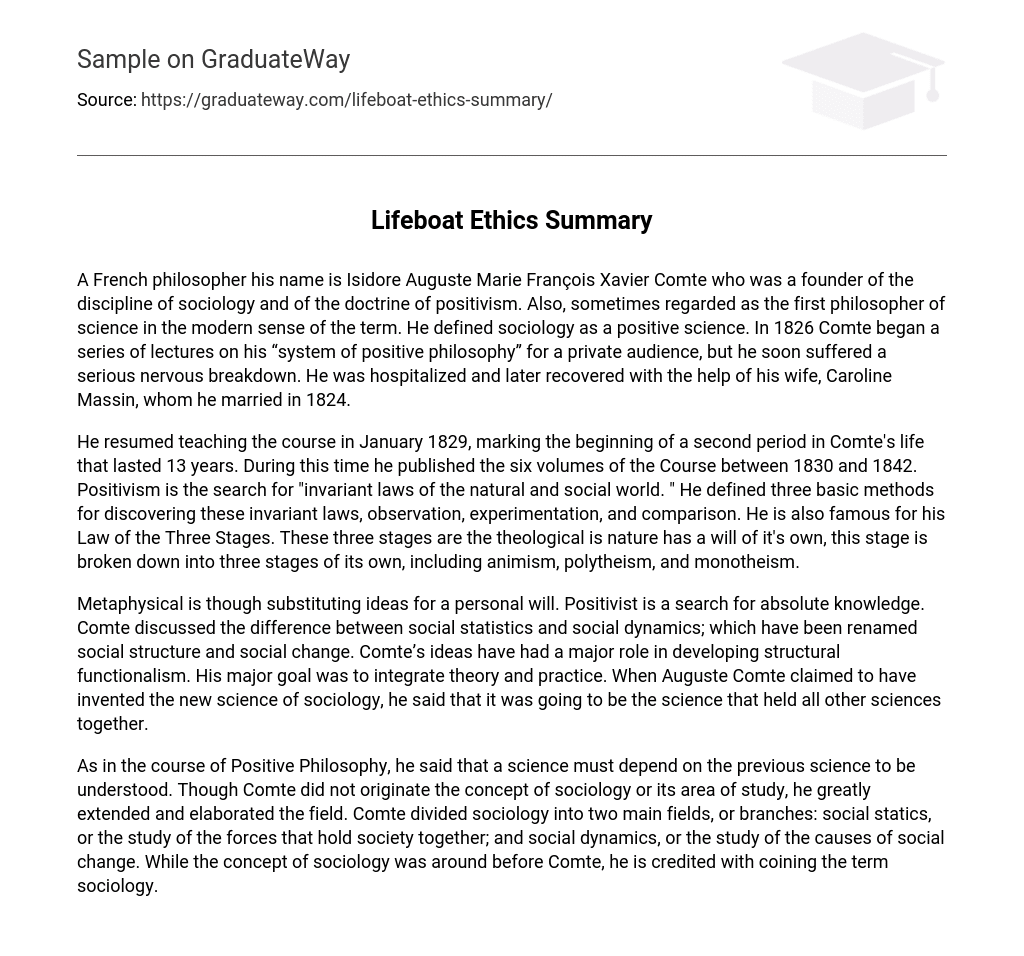Isidore Auguste Marie François Xavier Comte, a French philosopher, was a pioneer in sociology and the creator of positivism. He is recognized as the first philosopher of science in the modern sense. Comte introduced the term “positive science” to define sociology. From 1826 onwards, he presented a series of lectures on his “system of positive philosophy” to an exclusive audience. Unfortunately, Comte suffered a severe nervous breakdown and required hospitalization. Fortunately, with the assistance of his wife, Caroline Massin, whom he wedded in 1824, Comte ultimately regained his health.
In January 1829, Comte resumed teaching the course, which marked the start of his second phase lasting 13 years. Within this period, he published the six volumes of the Course between 1830 and 1842. Positivism focuses on finding invariant laws in both the natural and social world. Comte identified three fundamental methods for uncovering these invariant laws: observation, experimentation, and comparison. One of his notable contributions is the Law of the Three Stages. These stages encompass the theological perspective where nature possesses its own will, further divided into animism, polytheism, and monotheism.
Metaphysical replaces personal will with ideas, while Positivist seeks absolute knowledge. Comte coined the terms social statistics (now social structure) and social dynamics (now social change). Comte’s ideas played a key role in the development of structural functionalism and aimed to integrate theory and practice. When Comte proclaimed the invention of sociology, he envisioned it as the science that would unite all other sciences.
As stated in the Positive Philosophy course, he stated that a science must rely on the preceding science in order to be comprehended. Although Comte did not introduce the notion of sociology or its scope of study, he significantly expanded and elaborated the field. Comte divided sociology into two primary branches: social statics, which focuses on understanding the forces that unify society, and social dynamics, which investigates the reasons behind social changes. While the concept of sociology predated Comte, he is acknowledged as the one who coined the term sociology.





